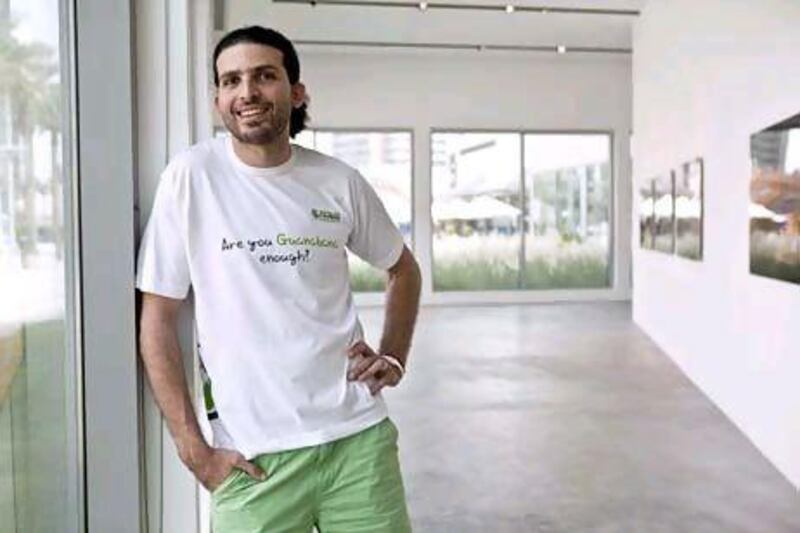Even in this uncertain economic climate Omar Samra is confident that travellers in the region will want to pay a premium for sustainable and eco-conscious trips.
Then again the avid adventurer, who is the first Egyptian and youngest Arab to scale Mount Everest, is used to taking bold risks. Mr Samra started his "carbon zero" travel company, Wild Guanabana, in 2009, after being inspired as a young man during off-the-beaten-path trips to Peru, Argentina, Chile as well as countries in Asia. The company was named after an exotic fruit he found in the jungles of Latin America. "I noticed the negative effect mass travelling was doing on the environment and host communities," he says.
But before he could jump into the market with his own venture he first had to quit a lucrative career as an investment banker in places such as London and Hong Kong. "You could say starting a business at the height of the financial crisis that depends on discretionary spending was not the brightest idea ever," says Mr Samra. "But I believed we were addressing a real need."
Today, Wild Guanabana's seven employees create highly customised adventures that are based on the places the employees have visited and have a low-carbon effect. "What that means is we don't put people up in 5-star chain hotels which create a lot of waste, whether it's water or electricity," says Mr Samra. "It's usually locally-owned places."
Obviously, transportation - particularly by plane - is a big carbon dioxide emitter. To offset these emissions, Wild Guanabana charges a premium that goes towards producing low-cost, energy-efficient natural gas stoves in Kenya. "It's a carbon-qualified project," says Mr Samra. "It has been registered for carbon offsets, so the more you invest in that project [the more you get in] carbon offsets in return."
The costs for Wild Guanabana's trips start at about US$950 (Dh3,490) for a week-long excursion to central Turkey where visitors stay in a local lodge, hike and learn how to cook Turkish ravioli. Higher-end itineraries include a two-week journey through Costa Rica with outings for sailing, white water rafting, surfing and volcano hiking. That trip costs about $3,200. Neither itinerary includes the cost of international flights.
Wild Guanabana, which originally launched in Cairo, recently moved to new headquarters in Dubai. Growth opportunities were limited in Egypt, and Mr Samra says his team was conducting research on where to develop new business before the unrest and revolution began. "Dubai came up as the obvious place, because we feel the cultural understanding, and the place is ready to adapt to this," he says. "The other thing is from a business perspective, we were doing our work in Egypt, but without doing any marketing in [the UAE] 20 per cent of our revenues were coming from this region."
Like a growing number of companies around the world, Wild Guanabana believes in the pillars of the so-called triple bottom line: people, planet, profit. Some companies have tried to reinvent their offerings so they are more environmentally sustainable but still strong revenue generators. Others firms, such as Wild Guanabana, have been created with the three Ps in mind. "It's obviously just an ethical way of doing business," says Mr Samra. "We believe being conscientious in the long run will attract more business."
Regional interest in sustainable travel has been gaining traction recently. Last November, the World Green Tourism summit was held in Abu Dhabi to help industry players discuss ways for developing a more environmentally friendly tourism sector, which is an area the Abu Dhabi Tourism Authority has focused on recently. In December, the World Green Tourism summit is to focus on providing practical steps on how the industry can turn its operations greener and what regional policymakers are doing to ensure a sustainable future for the market.
Mr Samra says he is looking to grow Wild Guanabana's bottom line by continuing to promote sustainable tourism. More importantly, he says, "what we're trying to do is set a precedent and inspire other bigger companies [to say,] 'if this smaller company is doing it, why aren't we'? It's almost like shaming the UAE travel companies into doing it.".





